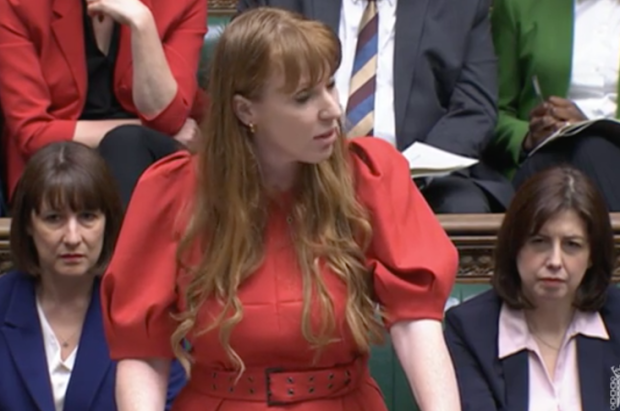A common failing of pro-Union politicians down the years has been the stubborn belief that there exists somewhere a tidy ‘solution’ to the problem of separatist nationalism. With new polling showing that ‘devo-max’ would comfortably win a three-way referendum, it appears to be silly season once again.
The history of unionism’s efforts to engineer decisive solutions to the challenges of separatism is an unhappy one. Devolution was meant to be it, after all. As Labour’s manifesto said in 1997:
‘A sovereign Westminster Parliament will devolve power to Scotland and Wales. The Union will be strengthened and the threat of separatism removed.’
Talk about ‘not understanding how the United Kingdom works’.
Obviously, that isn’t how it played out. So the same grand promises have been made of every subsequent tranche of concessions. It was used to justify David Cameron’s policy of giving tons of ground to Alex Salmond during the negotiations on the terms of the 2014 referendum. Then it was used to justify the cowardly and counter-productive ‘Vow’.
Since all of these have failed, the same hopes are pinned to even more outlandish schemes – such as the idea of trying to wriggle out of an independence vote by offering ‘devo-max’ instead. This is an ill-defined ‘middle way’ between Union and independence. It probably owes its position in the polls to the fact nobody really knows what it means.
Broadly speaking, the idea is that the end state for the Union should be with the Scottish Government discharging nearly all domestic functions with the help of UK fiscal transfers. This would leave a hollow shell of a state, where the central government does very little of anything that affects voters’ day-to-day lives.
Devo-max is usually trotted out by people like Gordon Brown, who need a way of acknowledging that their one big idea, devolution, manifestly hasn’t worked, without conceding that its underlying logic was wrong.
Unionists need to ask serious questions about whether this would constitute a success even if it ‘worked’. It is a repudiation of the idea that being governed as Britons is legitimate or delivers good outcomes.
But the more obvious problem is that it probably won’t work. A Union which does increasingly little but give money to the Scottish parliament is already failing; there are scant grounds for supposing the solution lies in giving even more while doing even less.
What’s more, what nationalist commentators acknowledge – even if their devolutionary counterparts cannot – is that political consent for fiscal transfers would probably not survive long exposure to devo-max. You can’t repudiate Britain as a political community for the pooling and sharing of decisions and retain it as one for the pooling and sharing of cash.
This is especially the case if you subscribe to the view of Ciaran Martin, who helped David Cameron negotiate the 2014 Edinburgh Agreement. He argues that the SNP should get a new referendum every time they win a Scottish election. If those parts of the UK which are currently net recipients of British funds reserve the right to opt out if ever they end up ‘paying in’, the moral basis for fiscal transfers as a mutual arrangement collapses.
As for how we negotiate the terms of this ethereal arrangement, another wheeze doing the rounds in unionist circles is trying to bait the SNP into pre-emptive independence negotiations.
In theory, the idea is that the talks expose the weakness of the Scottish Government’s case for independence, and force them to confront the realities of what dismembering the UK will mean. In his piece for Coffee House, Andrew Willshire also suggests that by hiving off the process to a group of officials and experts, it will create space for both Westminster and Holyrood to get on with the day job.
The most obvious problem with this is that the SNP have no interest whatsoever in playing down the independence question, let alone giving either the voters or the media the space to start scrutinising their woeful record on domestic issues. Nicola Sturgeon and her ministers would play up the theatre of the negotiations for all it was worth, relishing the validation offered by the chance to negotiate as peers with the UK Government.
Of course, the hope is that they get tripped up on the detail. But why would they, when it hasn’t happened so far? If London is stern, they can play the victim. If London is generous, they can talk up how viable independence is (whilst whipping up resentment in England and Wales). If the talks remain ‘behind closed doors’, they will misrepresent them. If the Government is forced to respond, we have precisely the drawn-out political clash the model was supposed to avoid.
Imagine trying to save a marriage by subjecting the couple to divorce proceedings, and you have a rough handle on the wisdom of staging pre-emptive independence negotiations.
Let’s not forget, too, that leaving things to officials means likely entrusting the future of the Union to the heirs and successors of men such as Alun Evans, the ex-Scottish Office head whose genius plan to save the UK was to strip the scope of British governance down to ‘the currency and national defence’.
After two decades of exhausting retreat, it is understandable unionists are tempted to cast around for clever wheezes. But it is a vice, and they must shake it off. The path to beating the SNP lies in waging the sort of long, detailed political and institutional warfare that they have directed against us. Short cuts just lead to long defeats.
Got something to add? Join the discussion and comment below.
Get 10 issues for just $10
Subscribe to The Spectator Australia today for the next 10 magazine issues, plus full online access, for just $10.



















Comments
Don't miss out
Join the conversation with other Spectator Australia readers. Subscribe to leave a comment.
SUBSCRIBEAlready a subscriber? Log in